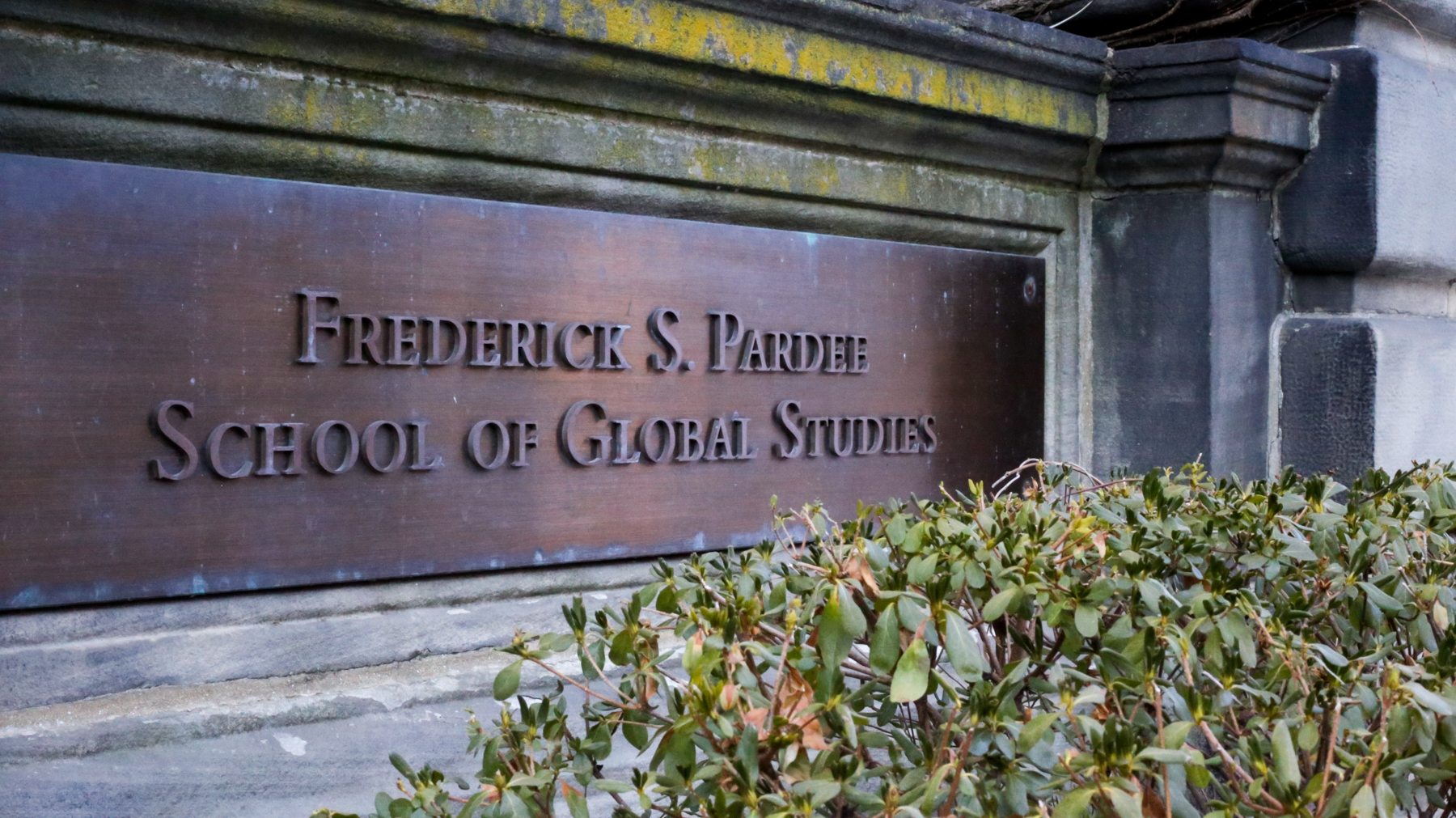Boston University’s Frederick S. Pardee School of Global Studies is introducing a new wave of junior faculty after several senior professors have retired in recent years.

(AMELIA GIESE )
Professors Igor Lukes, Joseph Fewsmith and Jorge Heine retired at the end of the 2024-2025 academic year. In 2024, Susan Eckstein and Vivien Schmidt retired, and in 2022, Erik Goldstein and Houchang Chehabi retired.
Scott Taylor, dean of Pardee, wrote in an email to The Daily Free Press the school experienced a high number of retirements from senior colleagues in a short span. However, these professors all had “long, illustrious careers,” he wrote.
All of the retiring professors were granted Emeritus status, an honor recognizing their lifetime contributions to the university and allowing them to maintain their academic rank.
Pardee has hired many new professors since — including Alexander de la Paz, Aimee Genell, Tsitsi Musasike, Solomon Owusu and Sanne Verschuren — to succeed retiring senior colleagues, Taylor wrote.
“These wonderful new faculty members doing exciting research and teaching will help us build on the marvelous legacy of our retiring and recently retired colleagues,” Taylor wrote.
Founded in 2014, Pardee aims to grow its scholarly capacity by employing professors on the tenure track, professors of practice, visiting practitioners and post-doctoral scholars, according to the school’s Strategic Plan.
Robert Hefner, a current professor in Pardee and the College of Arts and Sciences Department of Anthropology, helped create the Pardee School as a member of the faculty committee. He said the school has maintained its founding vision — to provide a place where a wide variety of disciplines can discuss global affairs — with its new hires.
“The major question mark for all of us lies not in the principles by which we’re going to continue to staff and make faculty choices,” Hefner said. “It really has to do with our ability to realize that ambition in a university and national climate that is a little bit more restrictive.”
Hefner said the school planned for retiring faculty to be replaced by professors similar in focus to the retiring faculty member.
So far, each retiring professor has not been succeeded by a professor of equivalent study, as “hiring decisions vary in regard to academic field,” Taylor wrote. However, Pardee is not downsizing, and the school expects new hires in the coming months, he added.
William W. Grimes, a Pardee professor, wrote in an email to The Daily Free Press that losing these professors will be a “great loss of interesting conversations and valuable viewpoints,” but he is confident the junior faculty will continue to uphold Pardee’s mission.
“What makes the Pardee School unique is that, rather than differentiating among disciplines or between scholars and practitioners, we consciously seek to bridge gaps,” Grimes wrote. “We are interdisciplinary rather than multidisciplinary — nearly all our faculty draw on scholarship from multiple disciplines.”
Matthew Turner, a recent graduate of Pardee, took many classes with now-retired Pardee professors and said he noticed differences in teaching styles when he took classes with newer faculty like Genell.
Turner said senior professors tend to teach through lectures, while junior professors lean toward class discussion. He said he prefers more “traditional” style classes with professors like Lukes.
“Lukes has lived through the era that he teaches about,” Turner said.
Yoomin Kin, a sophomore in Pardee, also had class with Lukes and said many senior Pardee professors have unique field experience.
“They share stories of things that they experience on the ground, people that they met when these historical events are happening,” Kin said.
However, Kin acknowledged the new professors’ connection to current events and said they tend to be more realistic about the job market.
Grimes wrote he believes the new faculty members are highly qualified, with one of key determinants for hiring in Pardee being real world experience.
“Our junior faculty are directly involved in a variety of policy discussions, ranging from security to development to migration to human rights and global justice,” Grimes wrote.
Turner said despite the loss of senior professors, the new professors teach quality classes tailored to their own experiences.
Kin said despite it being unfortunate for the students who learned from them, “it’s the reality of what happens when professors are done teaching at a university.”
Hefner said he believes the school upholdsPardee’s founding vision when hiring younger professors whose teaching aligns with that of the retired faculty, despite recent changes.
“This transition is taking place at a time of considerable economic uncertainty, both at Boston University and in the university academy nationally,” he said.
However, Hefner said he remains optimistic.
“The Pardee school will hold to that twin vision of both state-of-the-art, academic study and real-world intervention, with the idea of making the world a better place,” Hefner said.



















































































































